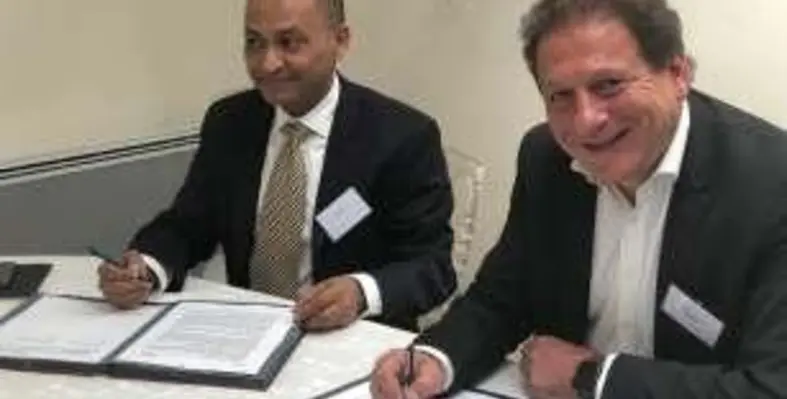Schneider Electric, one of the leading solution providers in digital transformation of energy management and automation, has signed a MoU with EM-ONE Energy Solutions, Nigerian sustainable energy engineering company, for better energy management and automation
This is in line with Schneider Electric’s initiative to create an African mini-grid industry, which involve decentralised electricity generation and distribution networks based on renewable energy.
Africa lagging behind in electrification
Africa is facing a serious problem of energy access. Nigeria is a country comprising 36 states, only one of which has an electricity network. According to the International Renewable Energy Agency (IRENA), West Africa’s energy consumption could quadruple by 2030 to reach 219 TWh a year, less than half of the 478 TWh already consumed in France in 2018.
Part of the solution will come from mini-grids, decentralised networks powered by photovoltaic energy. As the demand is high, an estimated 200,000 mini-grids are required to power the continent and reach the United Nations Sustainable Development Goal 7 (“Ensure access to affordable, reliable, sustainable and modern energy for all”).
Developing African mini-grid industry
“Rather than importing mini-grids produced in Europe, Asia or North America, we want to create an African mini-grid industry with operators, integrators, investors and local jobs,” commented Paul-François Cattier, Schneider Electric’s vice-president for business development in Africa and the Middle East.
In the past 10 years, the Group installed 700 mini-grids in Africa, mainly for rural electrification, through its Access to Energy program. This has largely been achieved with donations to NGOs and equipment often produced in Europe.
“The MoU concerns Schneider’s support with optimizing the architecture of these projects and developing an industrial platform to integrate these mini-grids into containers in Nigeria and manufacture Schneider Electric mini-grid solutions under license,” explained Paul-François Cattier.
Schneider Electric is expected to provide them with advice on setting up an industrial plant and testing. The Group is also working with public and private funding bodies. It intends to cover the full range of needs with capacities up to 500 kW through its standardised solutions and from 500kW to 20MW through specific architectures for cities of several hundred thousand inhabitants that are without an electricity grid.
“In 2050, Africa will account for 30 per cent of the global population according to the United Nations and could be one of the world’s top five economic powers by 2050,” explained Cattier.












